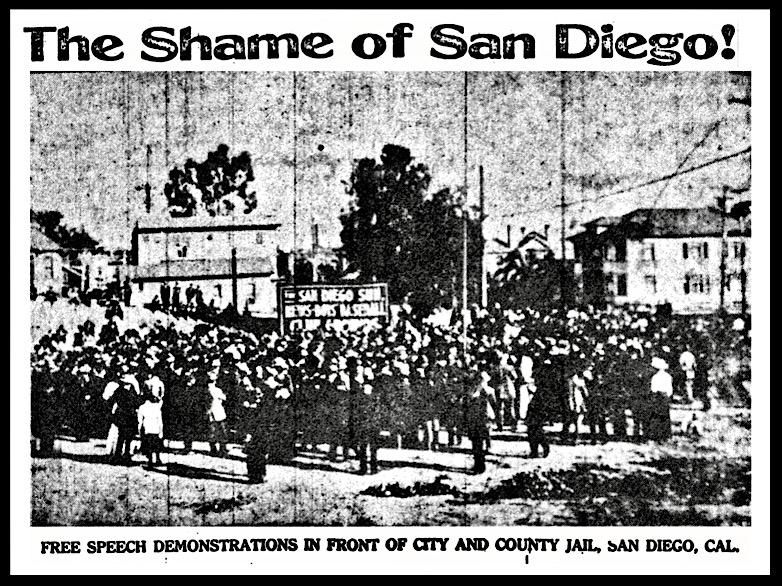
For nearly three months eighty-five business men of San Diego communicated with Captain Sehon and Chief of Police Wilson, secretly holding meetings in the U. S. Grant hotel, in an endeavor to find ways and means to gradually regulate the supreme law of the United States out of existence, namely, the law of FREE SPEECH and PUBLIC ASSEMBLY as granted to the people in the Constitution of the United States.
The Real Conspirators.
Here is the way these business men criminals finally proceeded to act:
They made their tools, the city council, pass an ordinance regulating street speaking under provisions of which they could move persons from the place where they had been wont to hold meetings. They thought that by moving the speakers some they gradually could move them more, and finally could move or regulate them clear out of town, and if necessary clear into old Mexico. They said that that was where the agitators belong.
But while the workers were willing to stand for reasonable regulations, they, like the Steel Trust, do not want strangulation, so on February 8 the dance started.
Workers Unite in Parade.
A protest parade was held in which I. W. W. members, Socialists, Single Taxers, Trade Unionists and unorganized and unattached workers joined hands and the line of march was arranged in a masterly manner.
We marched down to the sacred territory and then divided from four abreast into two sections, so that two could march together upon the sidewalk in accordance with Johnny Law. The forty-one persons who had decided to stand for their rights-rights which existed prior to governments-then mounted the box, only to be taken as are rabbits in a ferret drive, one by one, by those eunuch minded barbarians on the San Diego police force.
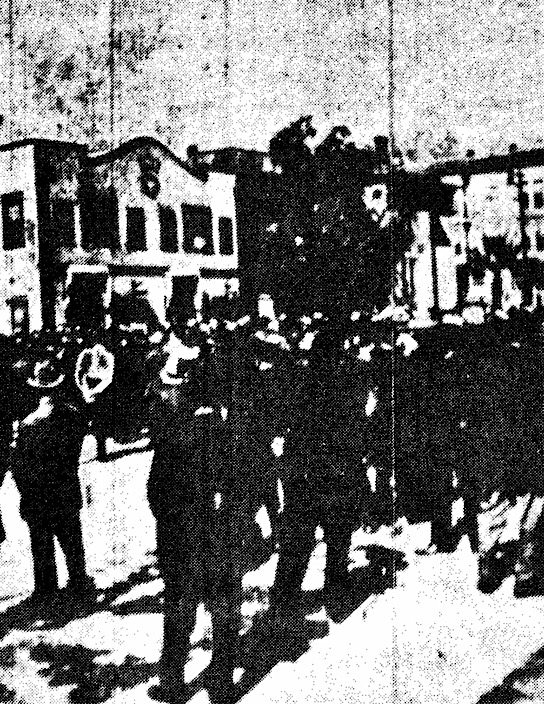 —–
—–
Conspiracy Charged Against “Agitators.”
The M. and M. criminals, whose every move is illegal because of their actions in restraint of trade, had their judicial flunkeys go the limit and place a charge of conspiracy against 48 members of the army that is fighting to uphold freedom of speech. Bonds were set at $1,500 in order to secure those who dared to advocate that the workers gain more of the good things of life through organization.
Instead of discouraging the fighters this action increased the determination to win and results were that arrests for street speaking have occurred almost nightly since the judicial outrage.
Rebels Show the Proper Spirit.
The police do not know how to deal with people who seem anxious to break into jail and the spectacle of agitators drawing lots to see who shall have the honor has them worried. When the brutalities of the police inside the jail was made public the indignation rose so high that a change had to be made. So the attempt to discourage new recruits by refusing those who were arrested even the common necessities of life and by herding 45 men in one small room failed dismally and made matters worse for the asinine authorities.
One hundred and sixty men and women are in jail up to date (February 20). The majority of these are of the I. W. W. The presence of the women who are class conscious enough to fight right on the firing line is a great factor in the fight.
Idiotic Statements of Dist. Attorney Utley.
The lack of useful work for the supernumeraries is shown by District Attorney Utley’s statements as reported by the San Diego Herald.
“It is the duty of the county to attend to these vandals, barbarians, tramps, hoboes, I. W. W.’s, and such trash, and I am going to attend to it.
“There’s going to be no street speaking, if I can prevent it, in the main part of the city. Some of ’em might tell the truth.
“We will starve them into submission by keeping them in the jug until they are tame. They won’t feel like telling the truth about us any more.”
We Workers Will Win.
Well! Well! Time will tell. We intend to keep up this fight and keep on telling the truth to our fellow workers until the last parasite is forced to leave our backs. So hop to it, kind friend of the wig and gown, and help to fan the flames of discontent.
When the workers are awakened so they deal equitably as man to man they will have no need of delving into the pasts for precedent or listening to ponderous, musty, meaningless Latin phrases from the lips of the satyr-sensed satellites of the capitalist class.
As for stopping us we are the useful members of society and you the useless. The useful persists and the useless decays and dies. The river must seawards despite you.
San Diego’s Salubrious Climate.
We extend a cordial invitation to all who have not visited this city to come and feast upon our salubrious climate and to make the acquaintance of those staunch upholders of working class justice-SEHON, WILSON and UTLEY.
Come on the cushions
Ride up on top;
Stick to the brakebeams;
Let nothing stop
Come in great numbers;
This we beseech:
Help San Diego
To win FREE SPEECH!
PRESS COMMITTEE,
Local 13, I. W. W.
—————
[Emphasis added.]
 —————
—————
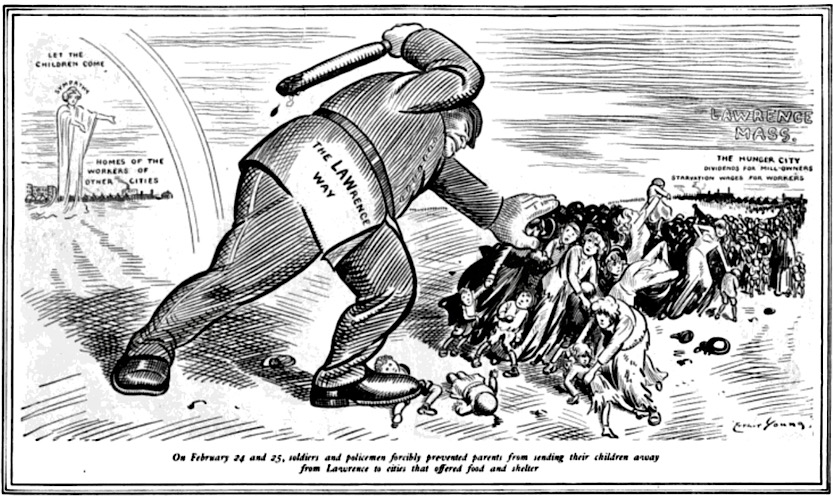
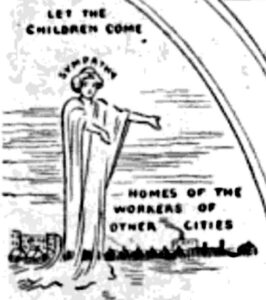
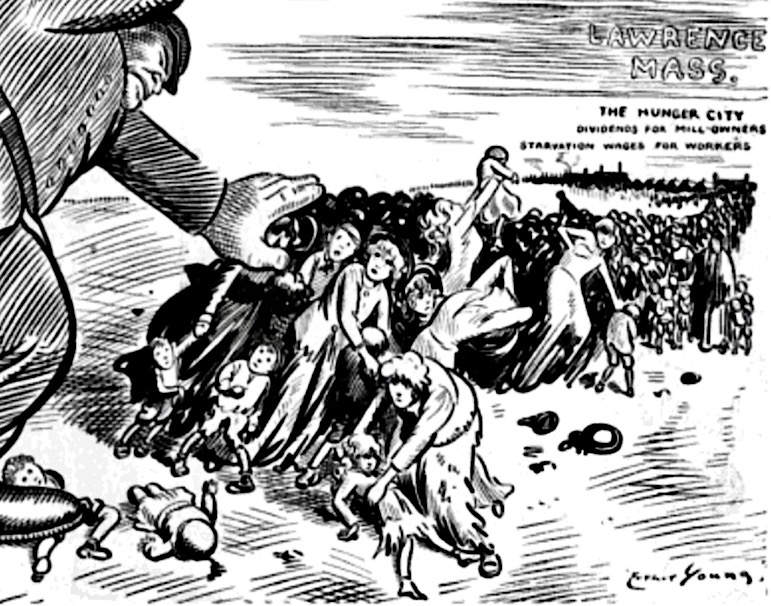
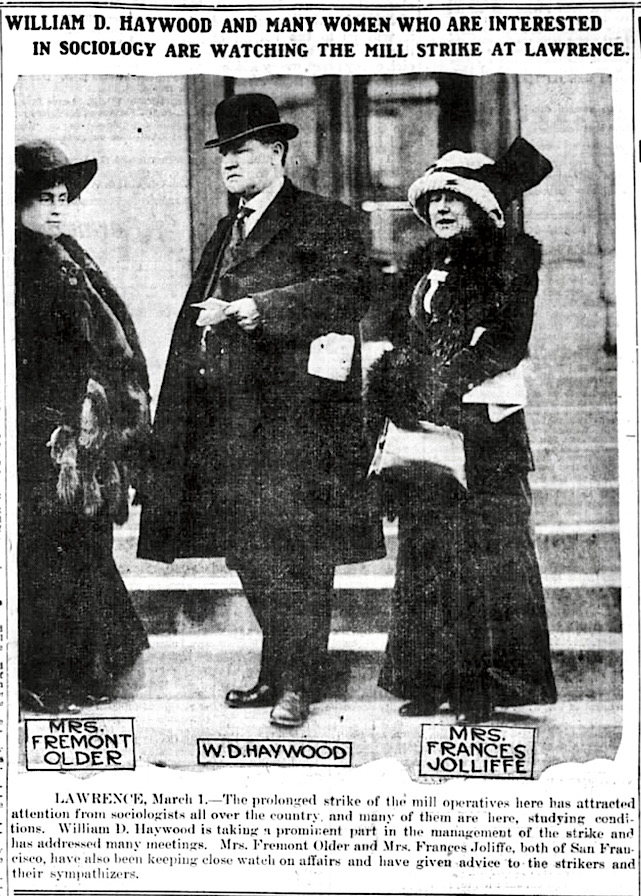
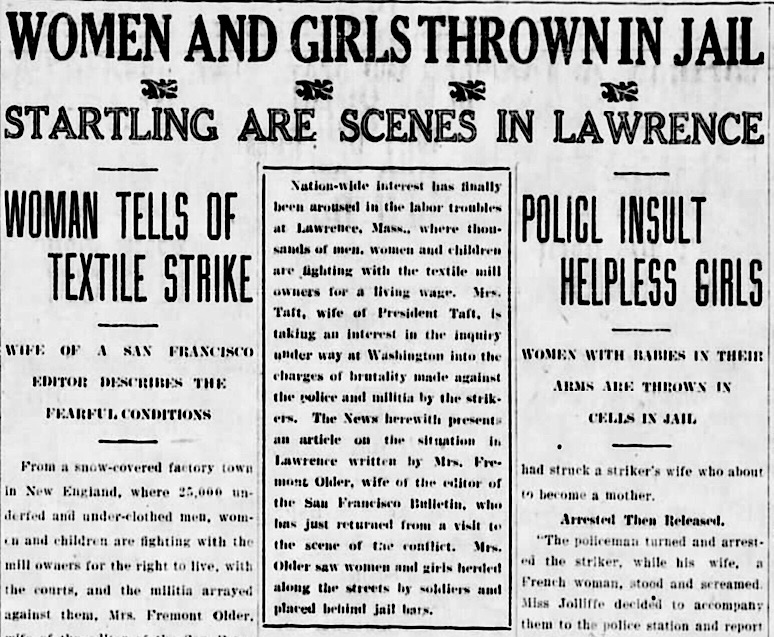
 —————
—————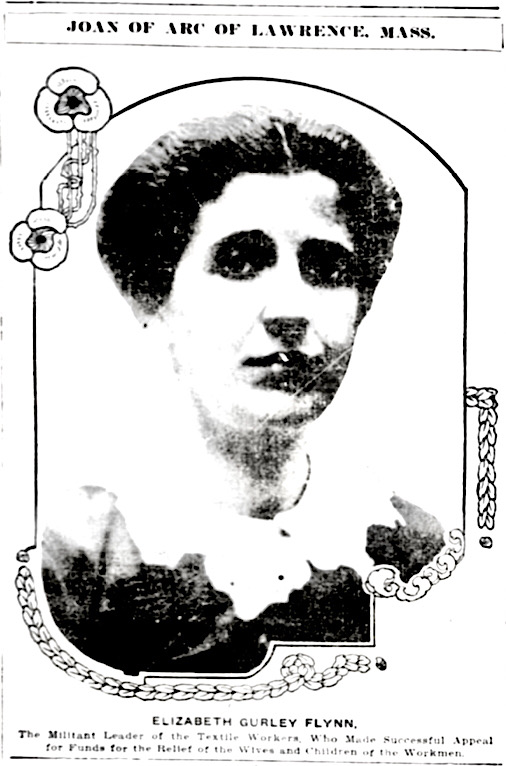
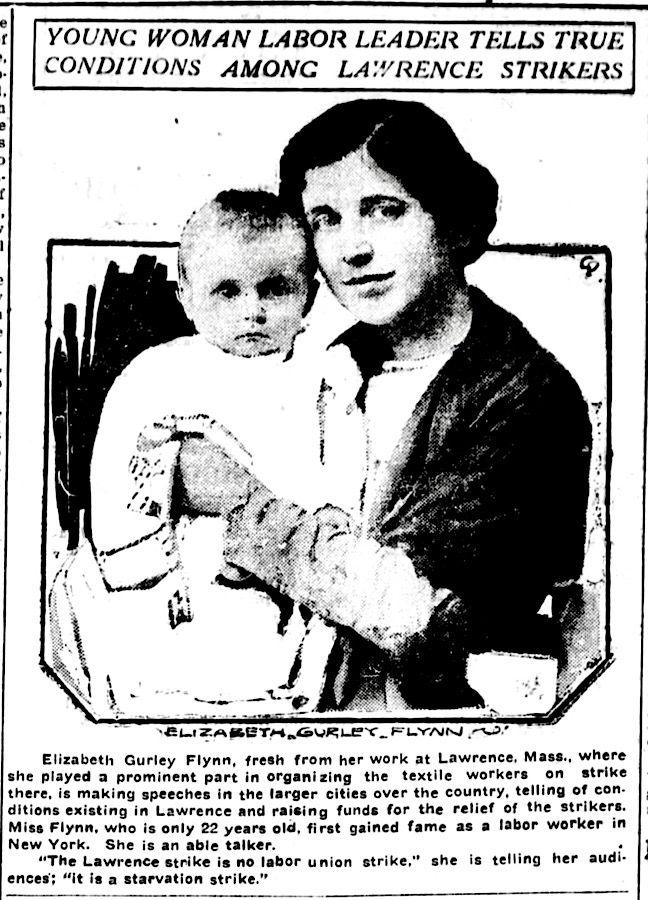
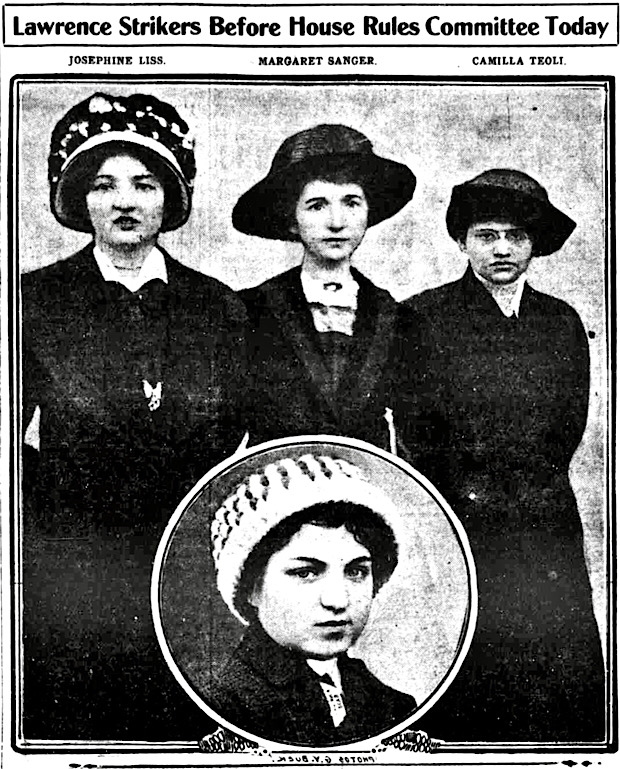
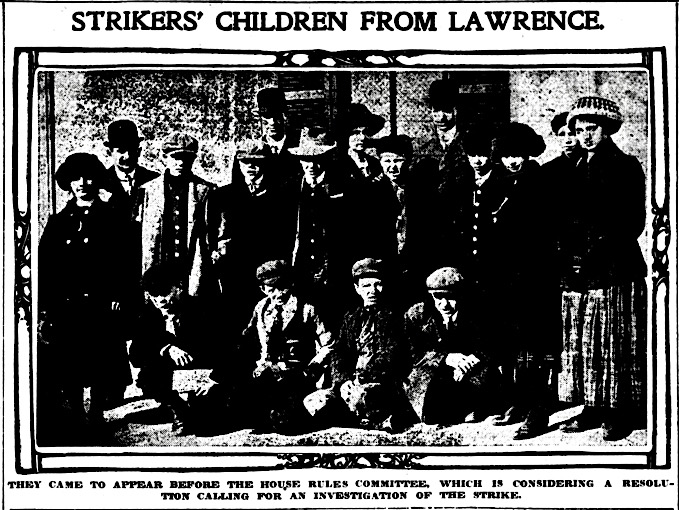
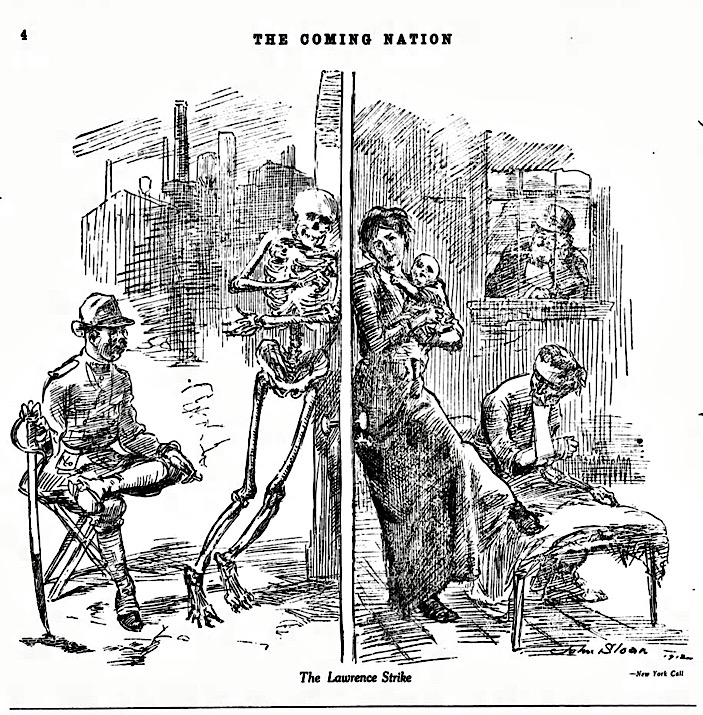
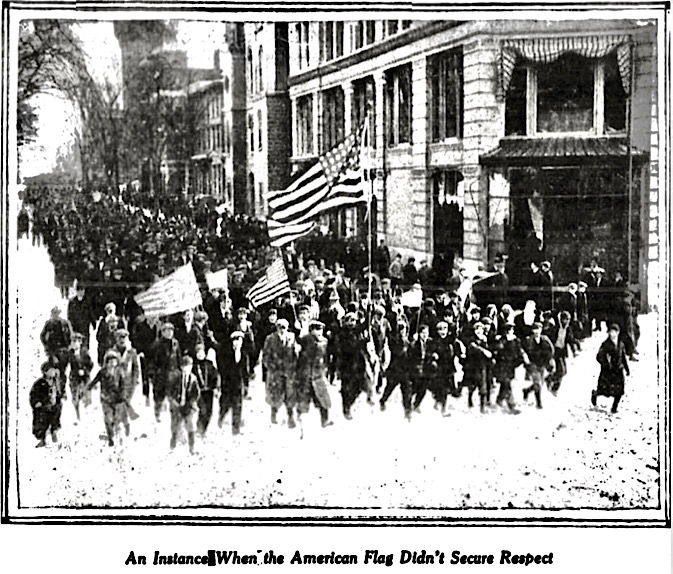
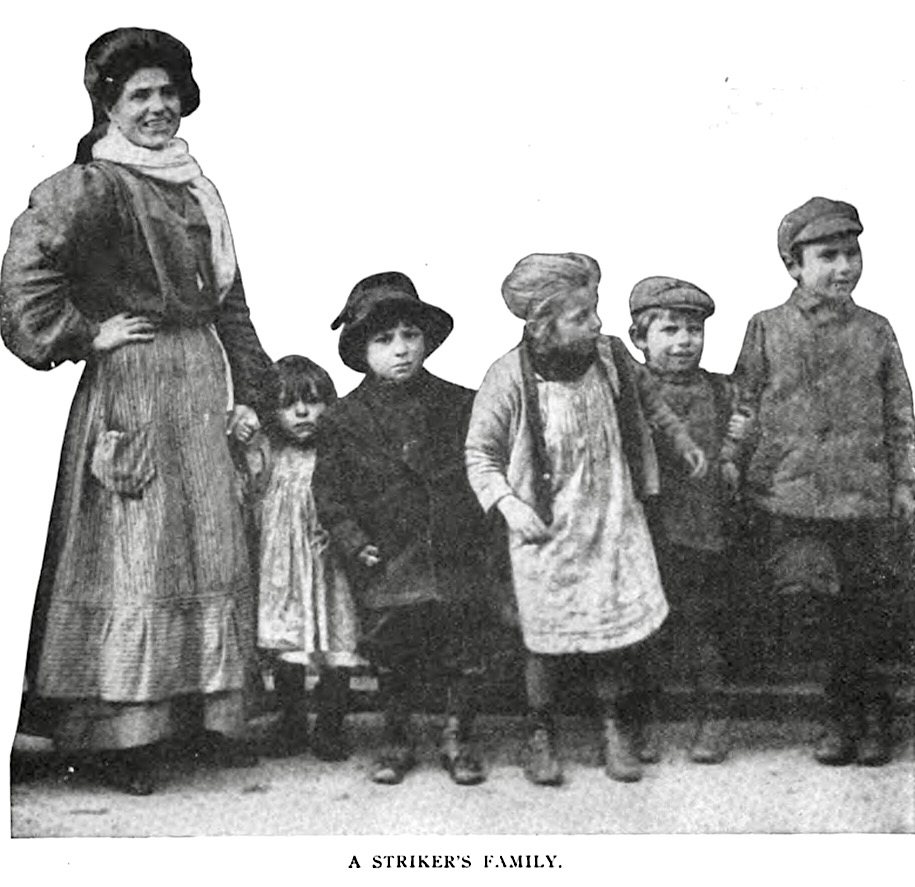
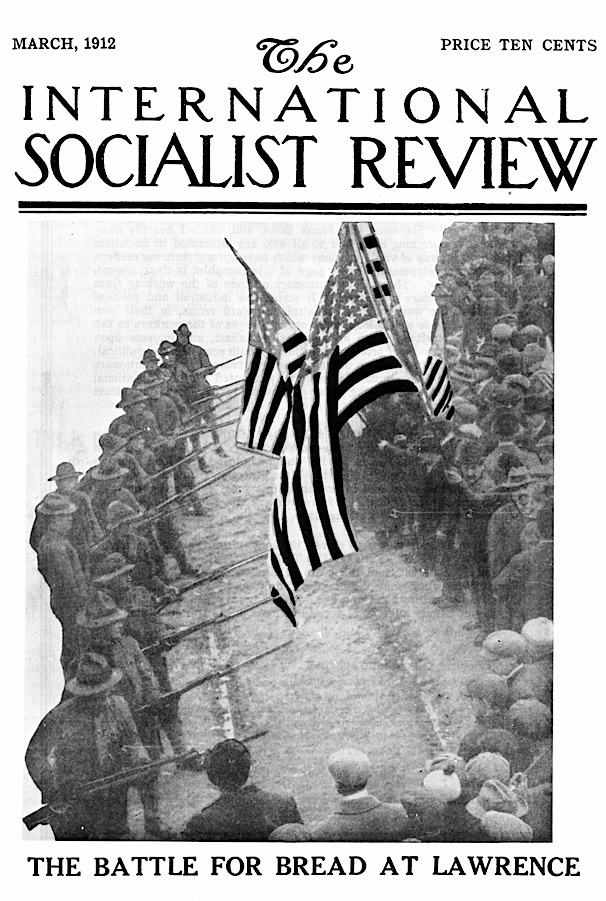
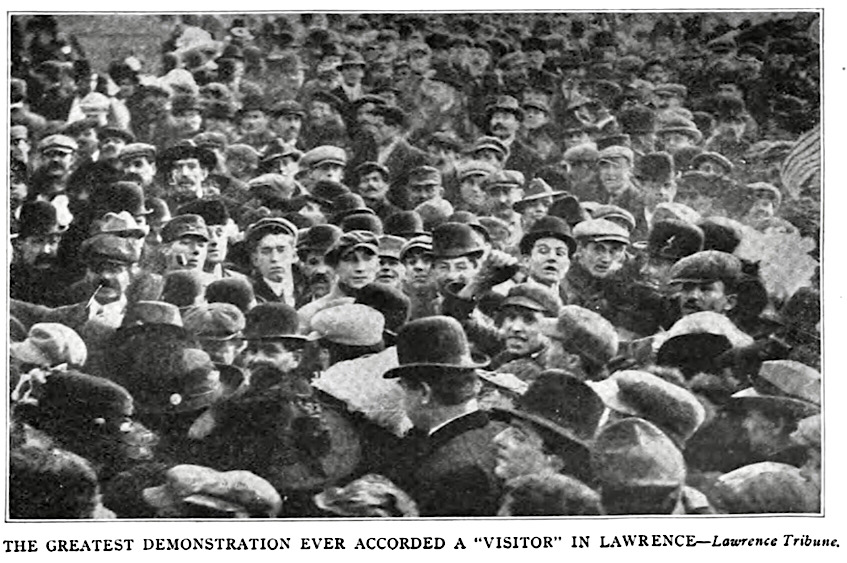
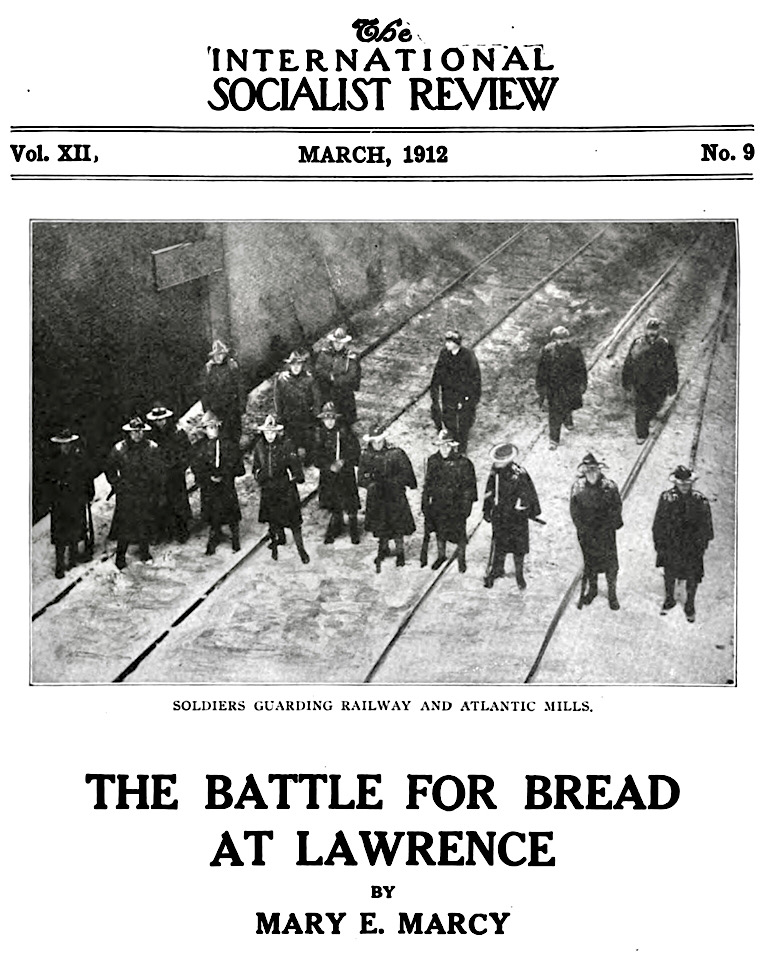
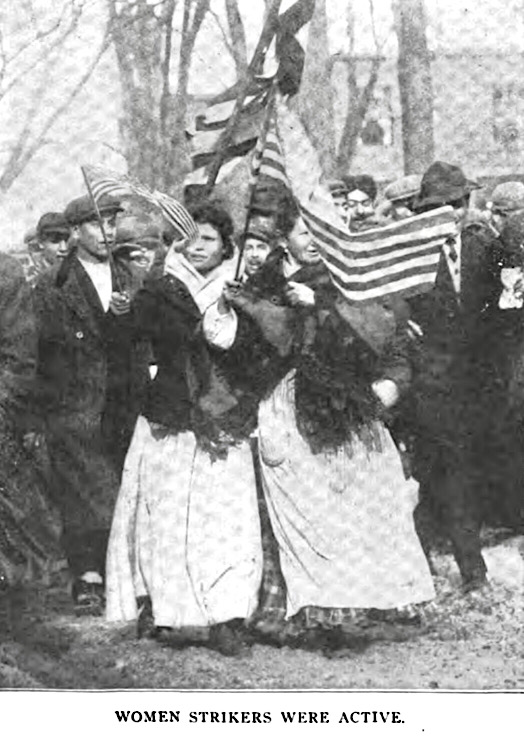
 —————
—————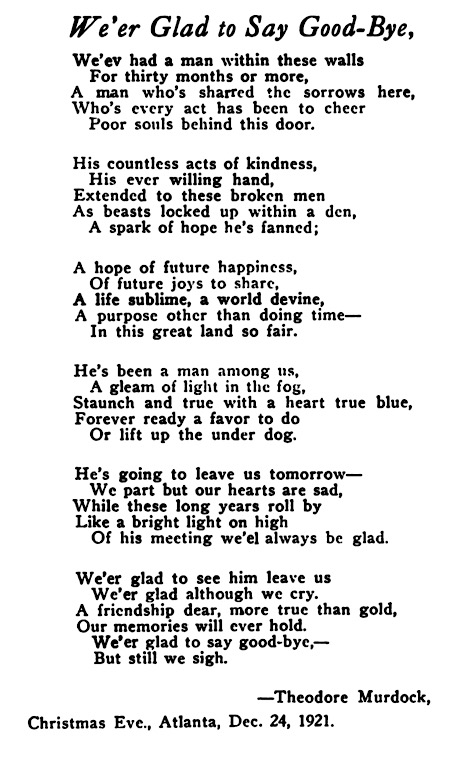
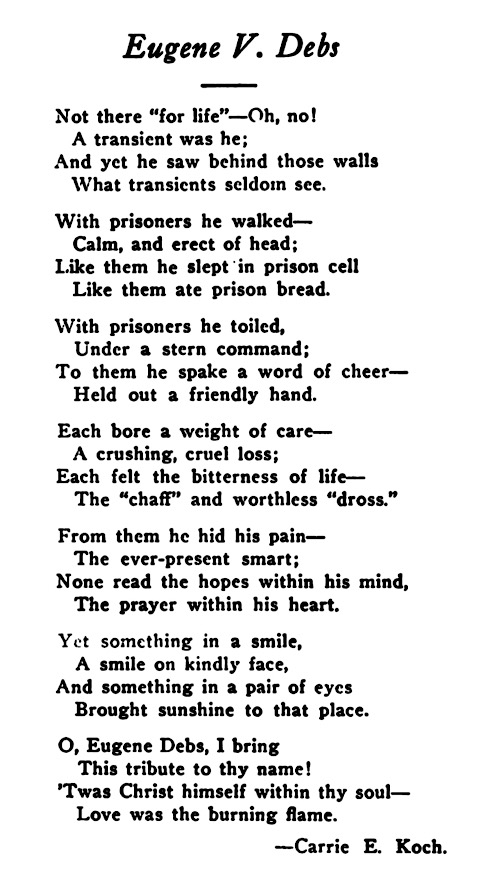
 —————
—————
 —–
—–